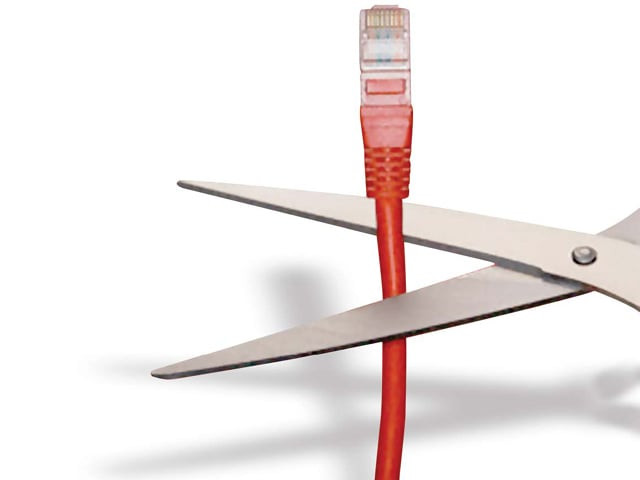A wire cutter away from freedom
In the beginning there was wire, and then we said ‘wireless’.

Broadband subscribers using technologies reliant on wires have been steadily decreasing over the past year. According to the Pakistan Telecommunication Authority (PTA), their percentage dropped from 73.2 per cent in fiscal 2009 to 59.1 in fiscal 2010.
The wires which provide the fixed line infrastructure for broadband internet distribution have been deteriorating. Hence, the quality of the connection suffers, speed randomly dips and at times disconnects altogether, all resulting in consumer anguish.
“I’m killing my wired connection. I don’t care how cheap it is compared to the wireless one, I can’t put up with this anymore,” said Rana Kashif, an irate customer.
This trend is in stark contrast to the global situation where DSL (Digital Subscriber Line), a wired technology, dominates the market with stakes of over 64 per cent.
The developing world seems to be shifting to a more expensive, emerging technology while developed countries have still not managed to get over wired internet. For them, wires are both cheaper and more stable.
The momentous change from wired to wireless occurred between January and June this year, according to the PTA. The number of wired customers fell from around 68,000 to 57,000, while those using wireless customers increased to 71,000 from 60,000. Pakistan’s wireless era has come into its own.
Love the game, not the player
According to the PTA, the wireless era is being heralded by two technologies: EVDO and WiMax. Its annual report highlights that several new private investors like Wateen, Link dot Net, Link Direct and wi-tribe have launched broadband internet services relying heavily on wireless technology.
Older, established companies like WorldCall and PTCL are also offering wireless services in addition to wired connections.
Along with growing customers, these companies have managed to bring down the costs associated with wireless internet because they do not want be dependent on the wires connecting Pakistan. “They have little to no control over the wires that lie under the ground, this is a setback they cannot deal with if they want to provide good customer service,” said an independent analyst.
Moreover, thanks to the increasing competition between private investors, prices have been falling fairly steadily.
All in all, it seems like a good time to go wireless in Pakistan.
Published in The Express Tribune, December 6th, 2010.



















COMMENTS
Comments are moderated and generally will be posted if they are on-topic and not abusive.
For more information, please see our Comments FAQ